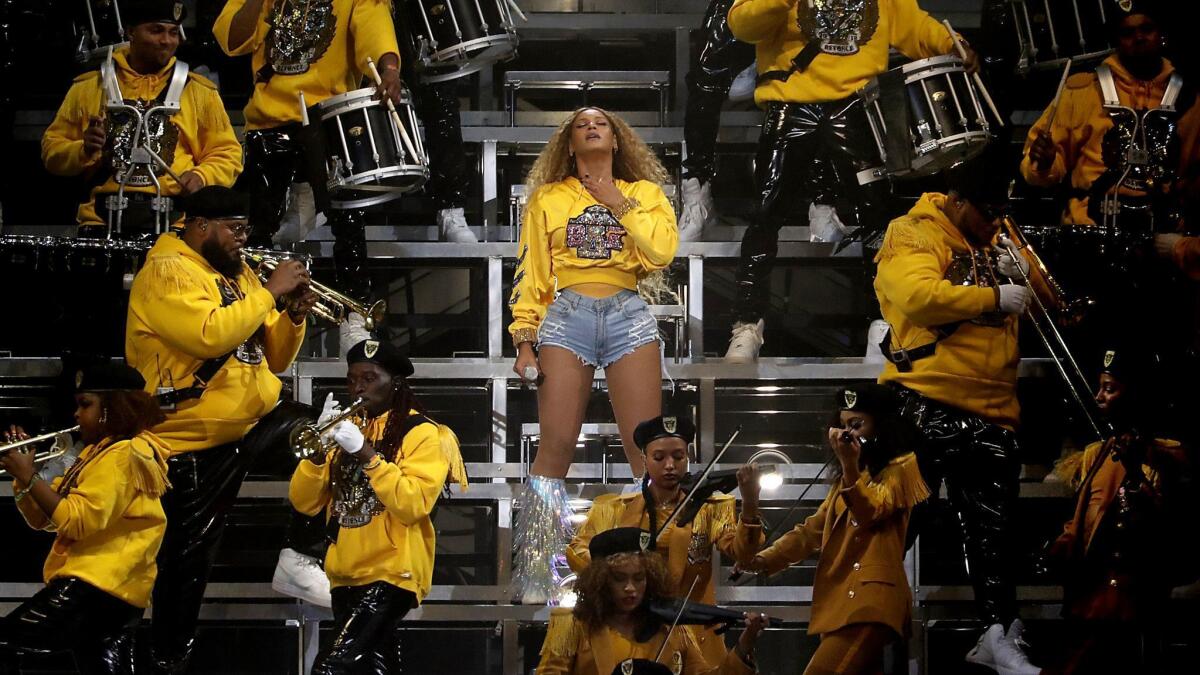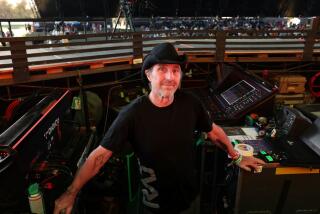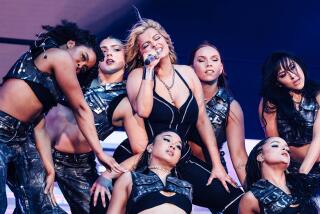Coachella at 20: Paul Tollett on why the fest evolved from alternative to pop

For two decades, the annual rollout of talent booked for the Coachella Valley Music and Arts Festival has been greeted with joy and derision, celebration and total confusion. It’s judged as a music connoisseur’s dream or as hopelessly behind the curve; as too pop, too rock, too much EDM or hip-hop.
The festival’s least controversial year was probably its first in 1999, with a lineup heavy with cutting-edge rock and electronic dance music led by Beck, Rage Against the Machine and the Chemical Brothers. It was a gathering of tribes that promoter Goldenvoice Productions had cultivated since 1981, when punk was the confrontational music of choice.
“It’s the DNA of what we do,” says Coachella co-founder Paul Tollett, Goldenvoice’s longtime president, of that original punk scene. He was a teenage Mod then who wore a suit to his high school, and by the time he joined the company, its reputation was with wildly uncompromising shows starring Black Flag, the Misfits and the Cramps. “The sensibilities that you pick up, we still use every day.”
The first years of Coachella were slanted toward major Los Angeles acts who were friends and contemporaries of the Goldenvoice crew (Tool, Jane’s Addiction, et al.). From there it moved into U.K. indie and New York indie, and continued to ebb and flow.
Modern rock still dominated, but the festival’s second chapter in 2001 included an electrifying wave of progressive hip-hop from the Roots, Mos Def and Gang Starr. The year after brought higher billing to EDM stars the Prodigy, Sasha & Digweed and Paul Oakenfold.
FULL COVERAGE: Coachella 2019 »
After the show’s groundbreaking year in 2004, with the monumental lineup of peak-era Radiohead, a reunited Pixies and the EDM godfathers of Kraftwerk, Coachella remained rooted in an alternative rock comfort zone. What also became clear was the point of the festival was often less about fabulous headliners than the new sounds buried on the undercard.
Tollett and his team are especially gifted at finding the next generation of essential artists. So fans in Indio could have seen M.I.A. in 2006, Diplo in 2005 or the Killers in 2004, each listed in small print at the bottom of the poster, years before mainstream discovery.
“You get a tape and you listen to the song and it sounds good, and you throw them at the bottom in a tent,” Tollett says, recalling his first booking of the Killers at Coachella. “Then later on they headline your festival and then every single thing in the world. It feels good to be part of that.”
Then came a surprising new set of artists: legacy rockers like Paul McCartney, Steely Dan and Roger Waters. Even then, Goldenvoice usually included a roll call of punk rockers to keep the operation connected to its history: the Descendents, the Refused, the Damned.
In the last couple of years, pop music has ascended in the form of sophisticated divas Lady Gaga and Beyoncé, whose 2018 headlining set was nearly two hours of euphoric pop and soul, blazing horns and dance moves, layered with culture and meaning. This week, Ariana Grande will attempt to follow that path with her ambitious, self-examining pop songs.
Fans who attended the first years of Coachella are some of the loudest critics of more recent talent lineups — though some who have attended every year since 1999 are among its most vigilant defenders. For Tollett, the changes are inevitable at a vibrant musical festival. Tastes evolve, generations of fans come and go.
“They still love music, more than ever probably,” Tollett suggests of those who’ve stopped coming. “I’m in that world and that age. They probably don’t want to go five to a hotel room anymore.”
Tollett points out that the distance between the first Coachella and today is about the same as the original Woodstock in 1969 and Depeche Mode at the Rose Bowl in 1988. That represents an epochal shift, as one cultural revolution eclipses another.
“Culture changes in 20 years so much, and I have to be there and make sure Coachella stays on course,” says Tollett. “I love everything we’ve ever promoted. That being said, you’ve got to move on.”
On the 2019 roster, rock has clearly faded from prominence, but it was only a few years back that the Indio polo fields hosted the loud guitars of AC/DC and Guns N’ Roses. Things will veer in unexpected directions, and Tollett is still hoping for that Smiths reunion.
“I don’t know what the future holds, but currently electronic-based music, including hip-hop and pop, seems to be at the forefront,” says Tollett, who expects to continue monitoring the changes ahead of next year’s festival.
“I listen to music nonstop, just to stay current,” he adds. “It’s not hard. It’s what I’ve liked to do since I was 10. That doesn’t really change. It’s fun.”
More to Read
The biggest entertainment stories
Get our big stories about Hollywood, film, television, music, arts, culture and more right in your inbox as soon as they publish.
You may occasionally receive promotional content from the Los Angeles Times.







